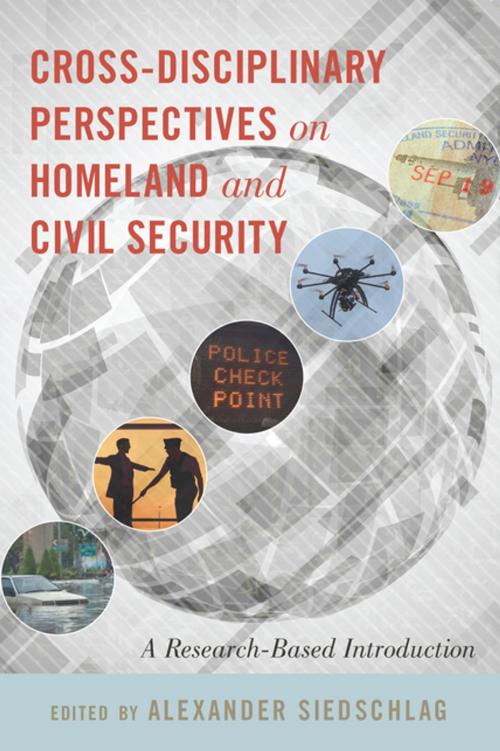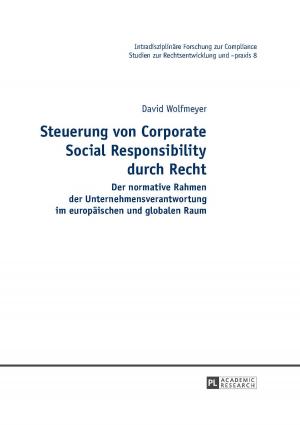Cross-disciplinary Perspectives on Homeland and Civil Security
A Research-Based Introduction
Nonfiction, Social & Cultural Studies, Political Science, Government, Public Affairs & Administration, Business & Finance, Business Reference, Government & Business, Politics, History & Theory| Author: | ISBN: | 9781454191117 | |
| Publisher: | Peter Lang | Publication: | February 18, 2016 |
| Imprint: | Peter Lang Inc., International Academic Publishers | Language: | English |
| Author: | |
| ISBN: | 9781454191117 |
| Publisher: | Peter Lang |
| Publication: | February 18, 2016 |
| Imprint: | Peter Lang Inc., International Academic Publishers |
| Language: | English |
This uniquely composed textbook provides a cross-disciplinary introduction to the field of homeland and civil security. It unites U.S. and international scholars and practitioners in addressing both foundational topics and risk- informed priorities in fostering secure societies. The book examines research-related foundations of homeland and civil security across national boundaries, and how those apply to addressing real-world challenges of our time. Representing different disciplines, intellectual styles, and methodological choices in meeting those challenges, chapters provide a comprehensive perspective across different approaches and levels of governance within an all-hazards framework. The book covers international experiences in border management; intelligence for homeland security; comparative political and legal frameworks for use of «drones»; risk management at the tribal level; terrorism as a strategic hybrid threat; critical infrastructure protection and resilience; historical lessons for emergency management in the homeland security era; the leadership challenge in homeland security; ethics, legal, and social issues in homeland and civil security research and practice; and examples of the scientific status of the field from the epistemic as well as the educational point of view. Including a research guide, a glossary, a bibliography, and an index, the book will be of distinctive worth to homeland security students in graduate courses, as well as to an international student community taking courses in political science, public administration, «new security studies», and security research.
This uniquely composed textbook provides a cross-disciplinary introduction to the field of homeland and civil security. It unites U.S. and international scholars and practitioners in addressing both foundational topics and risk- informed priorities in fostering secure societies. The book examines research-related foundations of homeland and civil security across national boundaries, and how those apply to addressing real-world challenges of our time. Representing different disciplines, intellectual styles, and methodological choices in meeting those challenges, chapters provide a comprehensive perspective across different approaches and levels of governance within an all-hazards framework. The book covers international experiences in border management; intelligence for homeland security; comparative political and legal frameworks for use of «drones»; risk management at the tribal level; terrorism as a strategic hybrid threat; critical infrastructure protection and resilience; historical lessons for emergency management in the homeland security era; the leadership challenge in homeland security; ethics, legal, and social issues in homeland and civil security research and practice; and examples of the scientific status of the field from the epistemic as well as the educational point of view. Including a research guide, a glossary, a bibliography, and an index, the book will be of distinctive worth to homeland security students in graduate courses, as well as to an international student community taking courses in political science, public administration, «new security studies», and security research.















